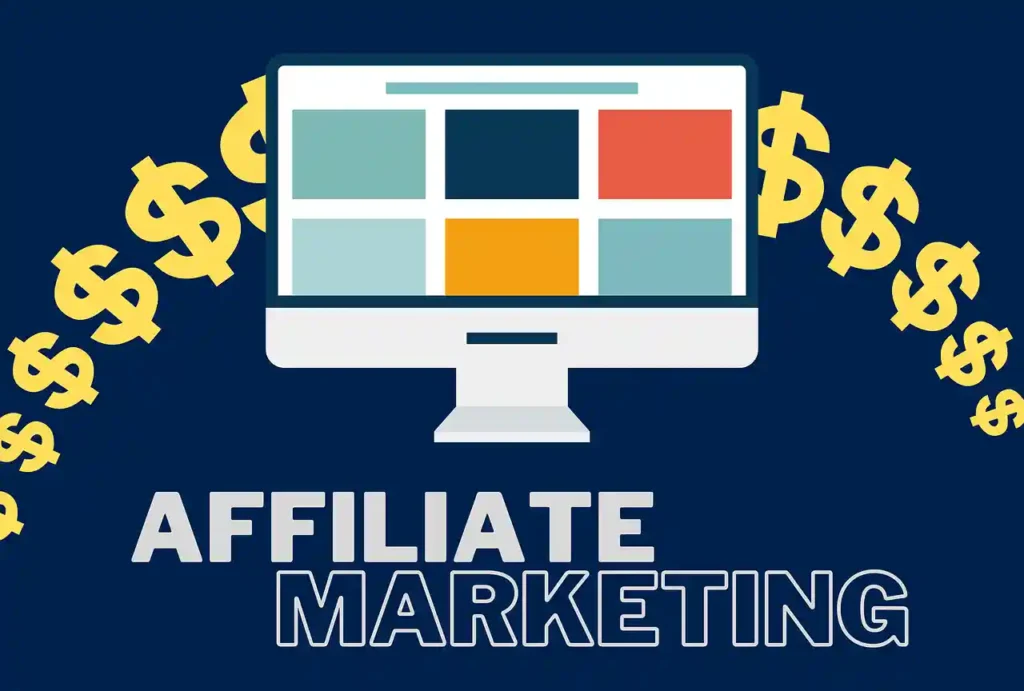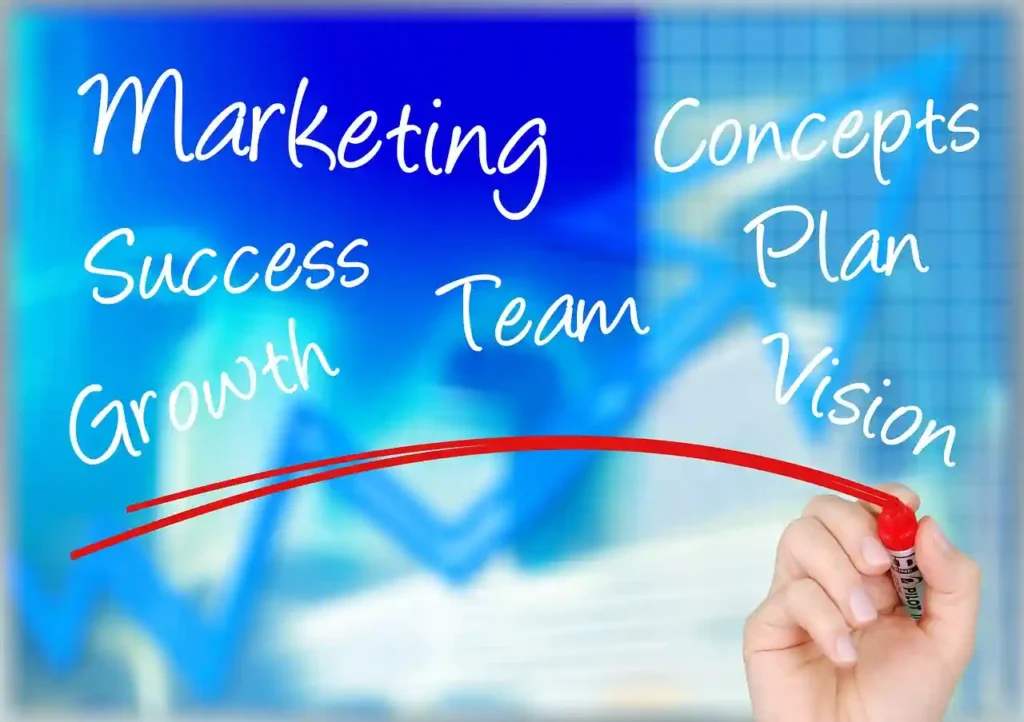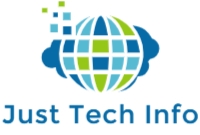In this environment, digital marketing has become a really useful instrument. The definition of digital marketing, an examination of its various forms, and the advantages of implementing digital marketing techniques into daily business operations are all covered in this article.
Table of Contents
What is Digital Marketing?
The term “digital marketing” describes the practice of promoting goods and services to customers through digital platforms, channels, and technologies.
Unlike traditional marketing, which relies on physical media such as print, television, and radio, digital marketing utilizes the internet and electronic devices to deliver promotional messages. This form of marketing allows businesses to engage with their audience in real-time, measure the effectiveness of their campaigns, and make data-driven decisions.
Types of Digital Marketing
Understanding the various types of digital marketing is crucial for businesses looking to create a comprehensive online presence. The main categories of digital marketing are as follows:

- Search Engine Optimization (SEO): Enhancing a website’s visibility on search engine results pages (SERPs) is known as search engine optimisation, or SEO. Researching keywords, optimising the page, and constructing high-caliber backlinks are how this is accomplished. The goal is to increase organic traffic to the website by making it more visible to users searching for relevant keywords.
- Content Marketing: The aim of content marketing is to generate leads that eventually become customers, just like any other marketing technique. It operates in a distinct manner from conventional advertising, though. Instead of luring customers in with the promise of value from a good or service, it provides value at no cost in the form of articles like these:
a. Blog posts
b. E-books
c. Newsletters
d. Video or audio transcripts
e. Whitepapers
f. Infographics
- Social Media Marketing: This type of digital marketing involves using social media platforms like Facebook, Instagram, Twitter, LinkedIn, and TikTok to promote products or services. Businesses can create content, run ads, and interact with their audience through comments, messages, and live sessions. Social media marketing helps build brand awareness and fosters customer loyalty.

- Pay-Per-Click (PPC) Advertising: PPC advertising allows businesses to place ads on search engines, social media platforms, and other websites. When an advertisement is clicked, advertisers are charged a fee. Facebook Ads and Google Ads are well-known PPC networks. This technique can increase a website’s targeted traffic and instant visibility.
- Email Marketing: Email marketing involves sending promotional messages or newsletters to a list of subscribers. It is a cost-effective way to nurture leads, keep customers informed about new products or services, and drive repeat business. Personalization and segmentation are key strategies in effective email marketing campaigns.
- Affiliate Marketing: In affiliate marketing, businesses partner with affiliates who promote their products or services in exchange for a commission on sales generated through their referral links. This type of marketing leverages the influence of affiliates to reach a wider audience.

- Influencer Marketing: This tactic is working with influencers—people who have a sizable online following on social media or other platforms—to market goods and services. Influencers can drive brand awareness and credibility through their endorsements.
- Video Marketing: To captivate and inform viewers, video marketing makes use of video content. Sharing videos on websites like Vimeo, YouTube, and social media is common. Video content may consist of product demos, interviews, instructional videos, and behind-the-scenes pictures.
Benefits of Digital Marketing
Compared to traditional marketing techniques, digital marketing has many benefits. Among the benefit of digital marketing are the following:

- Cost-Effectiveness: Compared to traditional marketing, digital marketing is frequently less expensive. Flexible spending possibilities are provided by numerous online advertising platforms, making participation possible for companies of various sizes. Digital marketing initiatives can also be modified in real time to optimise return on investment.
- Measurable Results: Tracking and evaluating campaign performance is one of the major advantages of digital marketing. Site traffic, conversion rates, click-through rates, and other data are all measured in depth by tools like Google Analytics and social media analytics. Through the analysis of this data, marketers are better able to determine what techniques are effective and ineffective.
- Targeted Audience Reach: Digital marketing allows businesses to target specific demographics, interests, and behaviors. This precision targeting ensures that marketing efforts are directed at the most relevant audience, increasing the likelihood of conversion. For instance, PPC campaigns can be tailored to reach users based on their search history and location.
- Enhanced Engagement: Through digital marketing, businesses can engage with their audience in real-time. Social media platforms enable direct interaction with customers through comments, likes, shares, and messages. This interaction builds stronger relationships and fosters customer loyalty.
- Global Reach: Digital marketing allows businesses to access a worldwide audience by removing geographical constraints. Due to the internet’s extensive reach, small businesses can now reach a wider audience by marketing their goods and services to clients abroad.
- Personalization: Digital marketing allows for highly personalized marketing efforts. Businesses can personalise their offers and messaging to each consumer by gathering information on their interests and behaviours. Personalized marketing enhances the customer experience and increases conversion rates.
- Improved Conversion Rates: The ability to target the right audience and measure campaign performance leads to higher conversion rates. Digital marketing strategies such as SEO, PPC, and email marketing are designed to drive qualified traffic to a website, resulting in more leads and sales.
- Adaptability and Flexibility: Digital marketing campaigns can be easily adjusted based on performance and changing market conditions. Marketers can experiment with different strategies, test various ad creatives, and pivot quickly if something isn’t working. This flexibility is invaluable in a fast-paced digital environment.
- Competitive Advantage: Through the use of digital marketing, companies may maintain an advantage over their rivals. Businesses can differentiate themselves in a congested market by utilising powerful online presence, efficient SEO techniques, and interesting social media initiatives.
Conclusion
Digital marketing is becoming a crucial part of any contemporary company plan. With its wide range of types and benefits, it offers businesses the tools to reach and engage their target audience effectively. Whether through SEO, content marketing, social media, or email campaigns, digital marketing provides measurable results, cost-effectiveness, and the ability to adapt to changing market dynamics. By understanding and utilizing the various types of digital marketing, businesses can enhance their online presence, drive growth, and achieve long-term success.
Incorporating digital marketing into your business strategy is no longer optional—it’s a necessity. The benefits of digital marketing are clear, and the opportunities it presents are vast. By embracing digital marketing, businesses can connect with their audience in meaningful ways, build lasting relationships, and achieve their marketing goals.
Read also “The importance of Digital Marketing“






